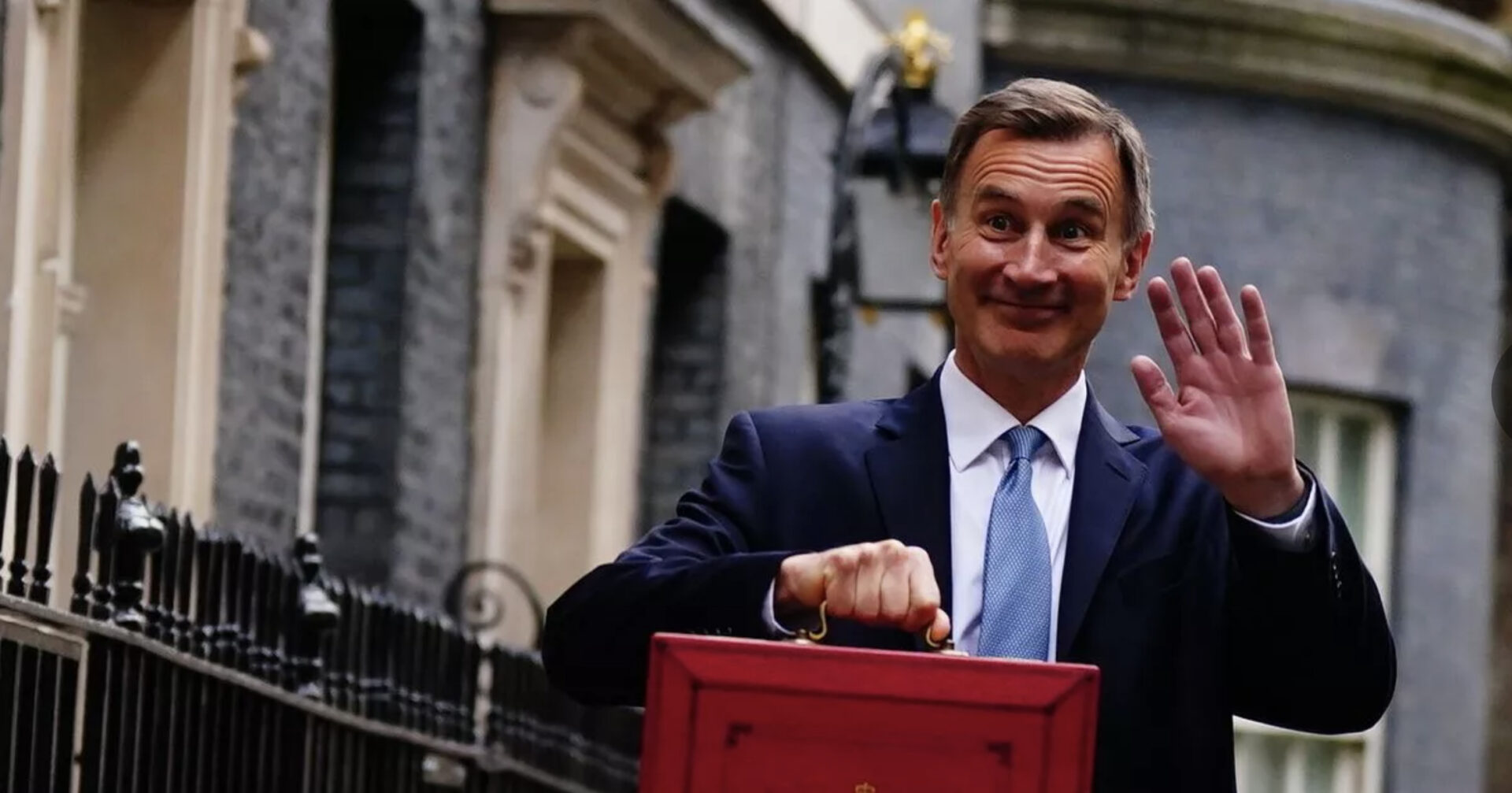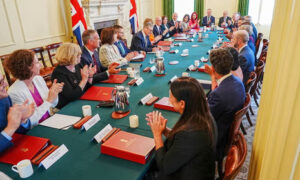On 15th March 2023, The Budget was announced by the UK Government – more specifically Jeremy Hunt who is Chancellor of the Exchequer. The role of the Chancellor is to be in charge of all economic and financial matters on behalf of the Government. In many countries this role is usually referred to as the Finance Minister.
What is the Budget?
On 15th March 2023, The Budget was announced by the UK Government – more specifically Jeremy Hunt who is Chancellor of the Exchequer. The role of the Chancellor is to be in charge of all economic and financial matters on behalf of the Government. In many countries this role is usually referred to as the Finance Minister. The Budget or ‘The Budget of His Majesty’s Government’ is the annual budget set by the Government to explain plans for Government spending and revenue generation (taxes) for the upcoming year.
Here is a quick summary of some of the key points:
Corporate Tax Changes
Despite calls to scrap it, the increase in corporation tax from 19% to 25% for businesses with profits over £250,000 will go ahead from 1 April. Businesses with profits below £50,000 will pay a 19% small profits rate. Businesses with profits between £50,000 and £250,000 will pay the main rate reduced by a marginal relief which provides a gradual increase in the effective corporation tax rate. Some are concerned that some businesses in the middle band could end up paying over 26% in corporate tax due to the incremental increases. Businesses in this band should consult with their accountant about what rates they may likely pay.
Tax Simplification
The Government has made a commitment to simplifying tax guidance and forms to make it easier for businesses. They will do this by consulting with business bodies and experts to understand how they can improve the HMRC customer experience to simplify the process for businesses.
Free Childcare
Right now, parents of 3 and 4-year-olds can get 30 hours of free childcare every week. The government plans to make this available to parents of 2-year-olds starting in April 2024. Then, from September 2024, it will be available to all children from 9 months old. And from September 2025, every parent who works and has a child under 5 will be able to get 30 hours of free childcare every week.
Pensions
In changes to pensions, the annual pensions tax-free allowance will increase from £40,000 to £60,000. The lifetime pensions allowance, currently set at £1.07m, will be scrapped.
Plastic Packing Tax
The government will uprate the Plastic Packaging Tax rate in line with CPI, from 1 April 2023.
VAT relief for energy saving materials
The government has published a call for evidence on options to reform the VAT relief for the installation of energy saving materials in the UK.
2 Year extension to Climate Change Agreement
Participants that meet agreed energy efficiency targets will be entitled to reduced rates of Climate Change Levy in 2025-26 and 2026-27.
Carbon Capture, Usage and Storage
£20 billion funding has been committed for early deployment of CCUS, to help meet the government’s climate commitments.
Great British Nuclear (GBN)
The government will launch GBN to support new nuclear builds and address constraints in the nuclear market. They will select leading technologies for Small Modular Reactors by the end of the year, and may co-fund if viable. Nuclear energy will be included in the green taxonomy to encourage private investment.
Investment Zones
The Budget announced the establishment of 12 investment zones to provide tax incentives and other benefits to businesses. These zones will be clustered around research institutions, such as universities, and focus on growth in technology, creative industries, life sciences, advanced manufacturing, or the green sector.
Each zone will receive £80 million in funding for tax reliefs, improving skills, providing specialist business support, improving the planning system, or boosting local infrastructure.
Eight zones will be located in England, including:
- The proposed East Midlands Mayoral Combined County Authority
- Greater Manchester Mayoral Combined Authority
- Liverpool City Region Mayoral Combined Authority
- The proposed North East Mayoral Combined Authority
- South Yorkshire Mayoral Combined Authority
- Tees Valley Mayoral Combined Authority
- West Midlands Mayoral Combined Authority
- West Yorkshire Mayoral Combined Authority
The UK government is also working with the devolved administrations on setting up four investment zones in Scotland, Wales, and Northern Ireland.
R&D Tax Credits
Further changes to R&D Tax credits have been announced. Starting April 1, 2023, R&D intensive SMEs that invest at least 40% of their spending in R&D will receive an increased rate of relief for losses. They will get £27 from HMRC for every £100 invested. The government is considering merging the RDEC and SME schemes, but no decision has been made yet. They plan to keep this option open for implementing a merged scheme from April 2024.
Need support with R&D Tax Credits? Despite the reductions, R&D Tax Credits can still allow you to reclaim money spent back into your business. If you need support in this area, fill out this form here and we will connect you to our R&D partner for a free consultation.
Full Expensing Allowance
In order to encourage investment from businesses, the government introduced the “super-deduction” in 2021. However, it will end on 31 March 2023. To replace it, a new “full expensing” will begin from 1 April 2023 until 31 March 2026. This new allowance lets companies write off the entire cost of eligible plant and machinery investment in the year they invest. Companies investing in special rate (including long life) assets will also benefit from a 50% first-year allowance in the year of investment. Expenditure on plant or machinery for leasing is excluded from first -year capital allowances due to longstanding concerns about abuse and wide scope for error.
Reforms to audio-visual tax reliefs
Film, TV and video games tax reliefs will change to expenditure credits starting from April 2024 after a public consultation. A new Audio-Visual Expenditure Credit will replace the current reliefs with film and high-end TV eligible for 34% credit rate and animation and children’s TV eligible for a rate of 39%. Video Games Expenditure Credit will also have a 34% credit rate, with qualifying expenditure limited to goods and services used or consumed in the UK. Games in development on 1 April 2025 can still claim EEA expenditure under the current video games tax relief until it ends in April 2027.
Artificial intelligence & quantum computing
The UK Government will invest approximately £900 million to build an exascale supercomputer and establish a new AI Research Resource, with initial investments starting in 2023. The budget also announces the creation of the Manchester Prize, which will award £1 million annually for the next 10 years for ground breaking research in AI. A task force will be established to advance UK sovereign capability in foundation models and provide direct advice to ministers. The Government has also published its Quantum Strategy, which commits to spending £2.5 billion over the next 10 years to support businesses through innovation funding opportunities, R&D facilities, and regulatory frameworks for quantum technologies.
People & Skills
The UK government has announced several measures in the budget to boost skills development and training opportunities. This includes the extension of Skills Bootcamps with £34.4m funding for 8,000 additional placements, expansion of placements for Sector-Based Work Academy Programme (SWAPs) by 40,000 over the next two years with £28.8m new funding, reaffirmation of Lifelong Loan Entitlement, a new offer for over-50s called Returnerships, and recommitment to maths to 18 and the rolling out of T Levels. These measures are aimed at providing opportunities for people to re-skill, upskill, and gain work experience in high-value sectors.
Fuel Duty
The government is maintaining the rates of fuel duty at the current levels for an additional 12 months.
Suicide Prevention Voluntary, Community and Social Enterprise (VCSE) Grant Fund
The government will make £10 million available for a grant fund for suicide prevention VCSE organisations in England across 2023-24 to 2024-25.
Support for charities and community organisations
The government will provide over £100 million of support for charities and community organisations in England. This will be targeted towards those organisations most at risk, due to increased demand from vulnerable groups and higher delivery costs, as well as providing investment in energy efficiency measures to reduce future operating costs.
Alcohol duty
Alcohol duty will rise with inflation from August, but duty has been frozen on draught products in pubs – resulting in 11p lower duty on draught products in pubs vs supermarkets in an effort to support pubs and the hospitality industry.
MHRA recognition framework
From 2024, MHRA will have a fully operational swift approval process for the most impactful new medicines and technologies. The MHRA is also exploring partnerships with trusted international agencies, such as the U.S., Europe and Japan to provide simple, rapid approvals for medicines and technologies from 2024.
Energy bill support
The government has not extended the Energy Bills Relief Scheme and The Budget confirmed that it will be replaced with the new Energy Bills Discount Scheme from 1 April. Unfortunately, this scheme provides significantly less support than the previous one.
What should businesses consider in response?
We recommend that businesses carefully examine these changes to make sure that they identify any risks that could appear resulting from changes and, importantly, look to exploit any new opportunities that have been announced. Examining budgets and speaking with accountants should also be done to make sure any changes in taxes and other costs are reflected and that the business is taking advantage of any support it is entitled to.
What should local government consider in response?
The government has outlined its plans for global leadership in a number of key areas. Local Governments should explore the capabilities of their region to see if they can deliver local cluster leadership in any of these key areas – playing to strengths and providing well defined expertise and identity for the regional offer. Local Government also needs to carefully consider any needs and challenges to businesses within their region and put in place plans, with the changes to LEPs & UKSPF, to ensure clarity and certainty for businesses in terms of the business support programmes & initiatives that can support them to tackle challenges and focus on stability and growth. This is a major opportunity to be innovative and radically impact models of business support delivery. Flaws and shortcomings of old models should be identified and approaches explored that could lead to better impact of programmes and better support for innovative and new types of businesses. The levelling-up consideration also means that there are opportunities that need to be carefully considered to increase the availability and accessibility to support by all within society – often former methods have meant that particular communities have been left out and excluded from support. This is a time to put this right. Working with an organisation like Bec can provide agile and impactful capabilities to deliver meaningful support to businesses that is delivered by entrepreneurs, for entrepreneurs for the whole of society. This brings new ideas, new ways to work and the potential to increase impact and create prosperity. Our work focuses on 3 main areas of design and delivery – business growth programmes, international market entry and sustainability & circular economy.



